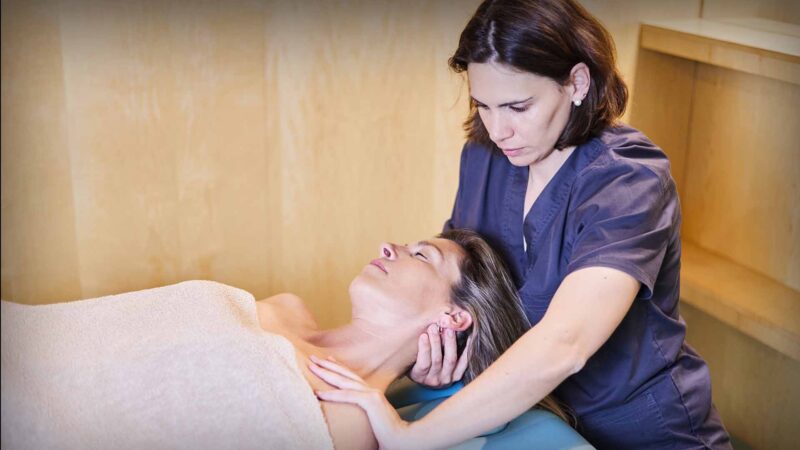Continuing the Australian Health Journal, Pioneers in Health Care series, Geriatrician Professor Susan Kurrle, Curran Professor in Health Care of Older People at the Faculty of Medicine and Health, University of Sydney AO spoke after receiving the Australian Healthcare and Hospitals Association 2022 Sidney Sax medal award.
The Sidney Sax medal is awarded for outstanding contributions to the development and improvement of Australia’s healthcare system.
Professor Kurrle is a practicing geriatrician for the Northern Sydney Local Health District (NSLHD), specialising in the areas of dementia, frailty, elder abuse, successful ageing, and intergenerational care. In addition to her work at NSLHD, Professor Kurrle is the expert geriatrician leading the work on the internationally award-winning ABC TV documentary series ‘Old People’s Home for 4 Year Olds’.
This series showcased the benefits that intergenerational care programs can have, and their ability to promote participation and social connectedness, increasing happiness, dignity, and self-esteem for all participants.
‘Professor Kurrle’s work on the many aspects of care for older people, is an area in need of champions who take a holistic approach to their health and well-being,’ says AHHA Board Chair, the Hon Jillian Skinner.
As a well-respected leader and expert driving the research agenda in dementia and aged care, Professor Kurrle has been co-designing services with general practice for several years.
‘The Geriatric Rapid Acute Care of the Elderly or GRACE program, co-designed by Professor Kurrle, is a ground-breaking approach to helping treat older patients in the appropriate setting, be it the home, or aged care settings, rather than in emergency departments.
This program was better not only for the patient, but for hospitals struggling to meet demand for services.’
The GRACE model has since been adopted by many other Local Health Districts, now more commonly known as ‘rapid-response teams’ and ‘geriatric flying squads’.
‘Her work across professional groups, and in using an inter-generational and educative approach, has been of great benefit to older people, their families and the Australian health system as a whole.’
Australian Health Journal spoke to Professor Kurrle about commencing her work initially on bringing elder abuse to public attention, in particular to health professionals. Through her work she has also advocated the use of hip protectors and managing falls and frailty. Her work today continues on tackling ageism and in successful ageing.
The 2022 Sidney Sax medal award presentation took place on the 26th of October 2022 at the National Portrait Gallery of Australia, Canberra.
You Might also like
-
Intervention in hearing loss for patients
In her role as an audiologist and trainer, Lauren McNee emphasises the urgency of addressing sudden hearing loss, highlighting the time-sensitive nature of available treatment options. She advises healthcare professionals, including GPs, pharmacists, primary care nurses and specialists, to remain vigilant for subtle signs of hearing loss in their patients. Such signs may include difficulty following prescription guidelines, miscommunication during conversations, or non-verbal cues like a tilt of the head or asking for repetitions.
-
Improving access to osteopathic services and integrated care models
The Chief Executive Officer of Osteopathy Australia, Antony Nicholas spoke with Australian Health Journal about:
– Involvement in the Strengthening Medicare Task Force
– The unique skills osteopaths have that can address the chronic disease burden
– Current workforce issues around osteopaths and if enough are coming through via student placements
– How uploading data to My Health Record by osteopaths could assist team-based care of patients
– How the value of osteopaths in Residential Aged Care Facilities (RACFs) could be better understood and better access for residents
– The recommendations around aged care access to allied health services, including osteopathy
– The recommendations around consumer access to osteopaths and GP referrals
– Other osteopathy recommendations in the upcoming Federal BudgetIn the lead up to the Australian Federal Budget in May 2023, Australian Health Journal reached out to peak health industry bodies to hear about their priorities, either noted in pre-budget submissions lodged with Federal Government in January 2023 or in recent forums such as the Strengthening Medicare Taskforce.
-
Contrasting Population Needs and Alternative Funding Models
Dr Jaspreet Saini is a GP with a decade of experience, practicing in West Pennant Hills and Rooty Hill, New South Wales. He began his medical journey at Monash University, followed by internships and residency at Blacktown Hospital, in Western Sydney. Instead of confining himself to a single specialty, he pursued general practice to explore various facets of medicine.



